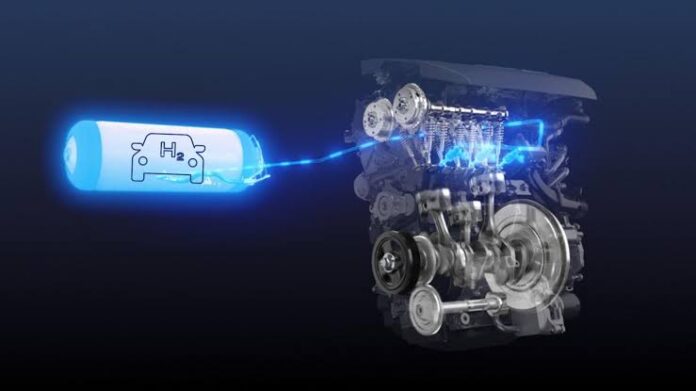What Are Hydrogen Combustion Engines ?
First thing first let’s know the basics: in order to move, a car need power. Until now, gasoline has been the primary source. However, the need for more sustainable energy sources has led to the discovery of new options.Traditional combustion engines that run on hydrogen instead of gasoline are referred to as hydrogen combustion engines. The hydrogen combustion engine, which uses hydrogen as its major source of energy, is one such prospective replacement. Experts have been debating whether hydrogen combustion engines will ever be practical enough for widespread use.
Also Read : Turbocharged SUV’s with Insane Power | Top 5 Turbocharged SUVs
Advantages

Water vapour makes up the majority of the exhaust gas. The main reason why hydrogen combustion engines are favoured is because of this. There may be some carbon dioxide left behind from time to time as a residue.
These engines have a substantially higher thermal efficiency (about 45%) than petrol and diesel engines (25-30%). (30-38 percent ).
NOx emissions may be insignificant in these engines that follow tight emission laws.
Disadvantages
Hydrogen tanks demand a lot of storage space, which adds a lot of weight to the vehicle and increases the danger of wear and tear.
Because of the lower energy density, these engines produce significantly less total power and torque than standard combustion engines. A 40:1 compression ratio is required, which is extremely difficult (petrol only needs 8:1).
Pre-ignition and banging are severe threats to various engine parts since the fuel burns so easily. The engine also has a proclivity towards backfiring!
Despite the fact that hydrogen emits fewer pollutants than typical fuels, it has a bigger carbon footprint than traditional fuels, which defeats the objective of this combustion engine.
Hydrogen combustion engines are expensive to mass produce!
Final Verdict
The downsides or limitations of hydrogen combustion engines clearly outweigh the advantages. This raises the question of whether or not these engines are worthwhile. It appears improbable that these engines will ever be widely used. However, hydrogen cells, which are alternatives to hydrogen combustion engines, can serve as a stepping stone toward complete vehicle electrification. Hydrogen fuel cells are significantly more compact and easier to manufacture, and they emit the fewest emissions. The ultimate goal of researchers is to create zero-emission automobiles that can deliver peak performance using zero-emission fuels. Torque vectoring is being actively explored alongside hydrogen fuel engines in order to improve the efficiency of electric vehicles!
Join Us: Facebook | Whatsapp | Instagram







